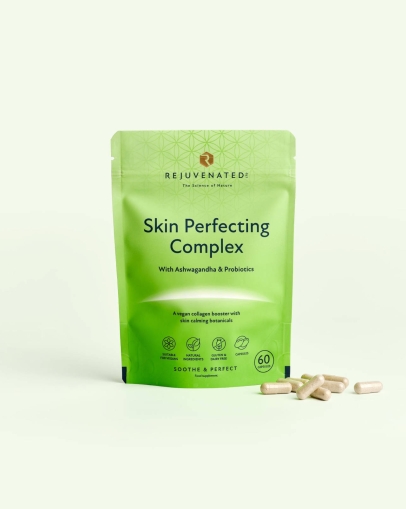4 benefits of MSM (Methylsulfonylmethane)

Methylsulfonylmethane, or MSM, is a naturally occurring sulphur-containing compound that plays a vital role in numerous bodily processes. It is found in green plants, animals, and humans and can also be obtained through supplements and topical creams.
In this article, we take a look at the four main advantages you can benefit from by taking MSM, ways you can incorporate it into your diet as well as important safety considerations.
What is methylsulfonylmethane (MSM)?
Methylsulfonylmethane, commonly referred to as MSM, is a sulphur-containing compound naturally found in humans, green plants and animals. It is an oxidised form of dimethyl sulfoxide, an organic compound found in flaxseeds. It is also available as a dietary supplement and is sometimes added to topical creams and lotions.
Sulphur is an essential nutrient that is involved in many important bodily processes, including the formation of connective tissues, the synthesis of certain amino acids, and the production of enzymes and hormones. MSM is a source of bioavailable sulphur, meaning that it can be easily absorbed and used by the body.
4 MSM benefits for your health
MSM is good for treating numerous ailments, but it is perhaps most commonly used to reduce inflammation and ease joint pain. Research shows that methylsulfonylmethane supplements can also treat rosacea, arthritis and more. Here is a deeper look into the benefits of methylsulfonylmethane.
Is MSM anti-inflammatory?
MSM's anti-inflammatory effects are thought to be related to its ability to block the production of certain inflammatory molecules in the body, such as cytokines and prostaglandins.
Additionally, MSM is a source of sulphur, which is an essential nutrient that is involved in the production of antioxidant enzymes (like glutathione) that can help protect against inflammation.
Does MSM boost skin and hair health?
The tissues of our hair, nails and even the outer layer of our skin are formed with keratin, which is a sulphur-based compound. Therefore, MSM, which is also sulphur-based, can strengthen keratin and its impact on hair and nail growth.
Methylsulfonylmethane has also been linked to reducing inflamed skin, including redness and rosacea. MSM has also been shown to support the production of collagen, which can contribute to improved skin texture.
Is MSM good for joints?
Methylsulfonylmethane is a popular treatment option for individuals who suffer from muscle or joint pain. A study has shown that taking MSM supplements can reduce pain, joint swelling and stiffness compared to participants in the placebo group.
MSM supplements also contribute to reducing inflammation, which in turn can alleviate joint pain and improve joint mobility. These supplements also support collagen production, which can help strengthen and protect joints, tendons and ligaments.
Does MSM improve immunity?
There is some evidence to suggest that Methylsulfonylmethane (MSM) may have immune-boosting properties, although more research is needed to fully understand its effects on the immune system.
MSM reduces oxidative stress and inflammation, which weakens our immune system. MSM also has a role in glutathione production, which is considered a key antioxidant and important for detoxification and strengthening immunity.
How can you get methylsulfonylmethane (MSM) into your diet?
MSM is naturally found in cruciferous vegetables such as cabbage, broccoli, bok choy and cauliflower, as well as eggs. However, cooking and other food processing destroys the natural sulphur content of these foods.
Therefore, the easiest way to ensure you are getting MSM into your diet is to take it as a supplement. This will assist in accelerating healing and detoxing the body. You can get your daily dose of MSM in our Skin Perfecting Complex.
How to Take MSM: Dosage and Safety Considerations
Methylsulfonylmethane (MSM) is available in various forms, including capsules, tablets, powders, and creams. The appropriate dosage of MSM can vary depending on your age, health status, and the specific condition being treated. Most clinical studies have used doses ranging from 500 mg to 6 grams per day, although some people may benefit from higher doses.
When taking MSM, it's important to start with a low dose and gradually increase it to minimise the risk of side effects such as nausea, diarrhoea, and headache. It's also important to drink plenty of water when taking MSM to help flush out any excess sulphur.
While MSM is generally considered safe, it may interact with certain medications or cause side effects in some people. It's important to talk to a healthcare professional before starting to take MSM, especially if you have a medical condition or are taking any medications.
Conclusion
Methylsulfonylmethane is a versatile compound that offers several health benefits. It is involved in various bodily processes, making it a valuable nutrient. MSM is available in various forms, including supplements and topical creams, making it easy to incorporate into one's diet.
Its anti-inflammatory and immune-boosting properties make it a popular choice for individuals suffering from joint pain and inflammation. However, as with any supplement, it's essential to talk to a healthcare professional before taking MSM to ensure it is safe for your specific needs.







